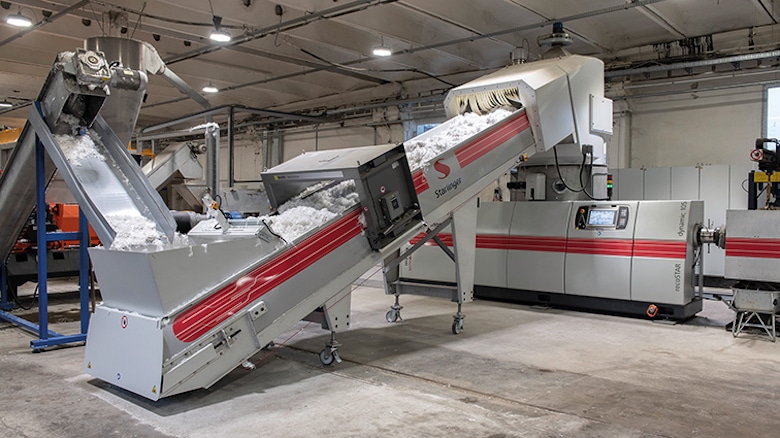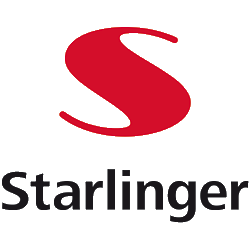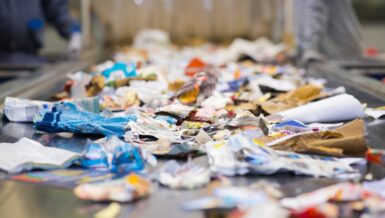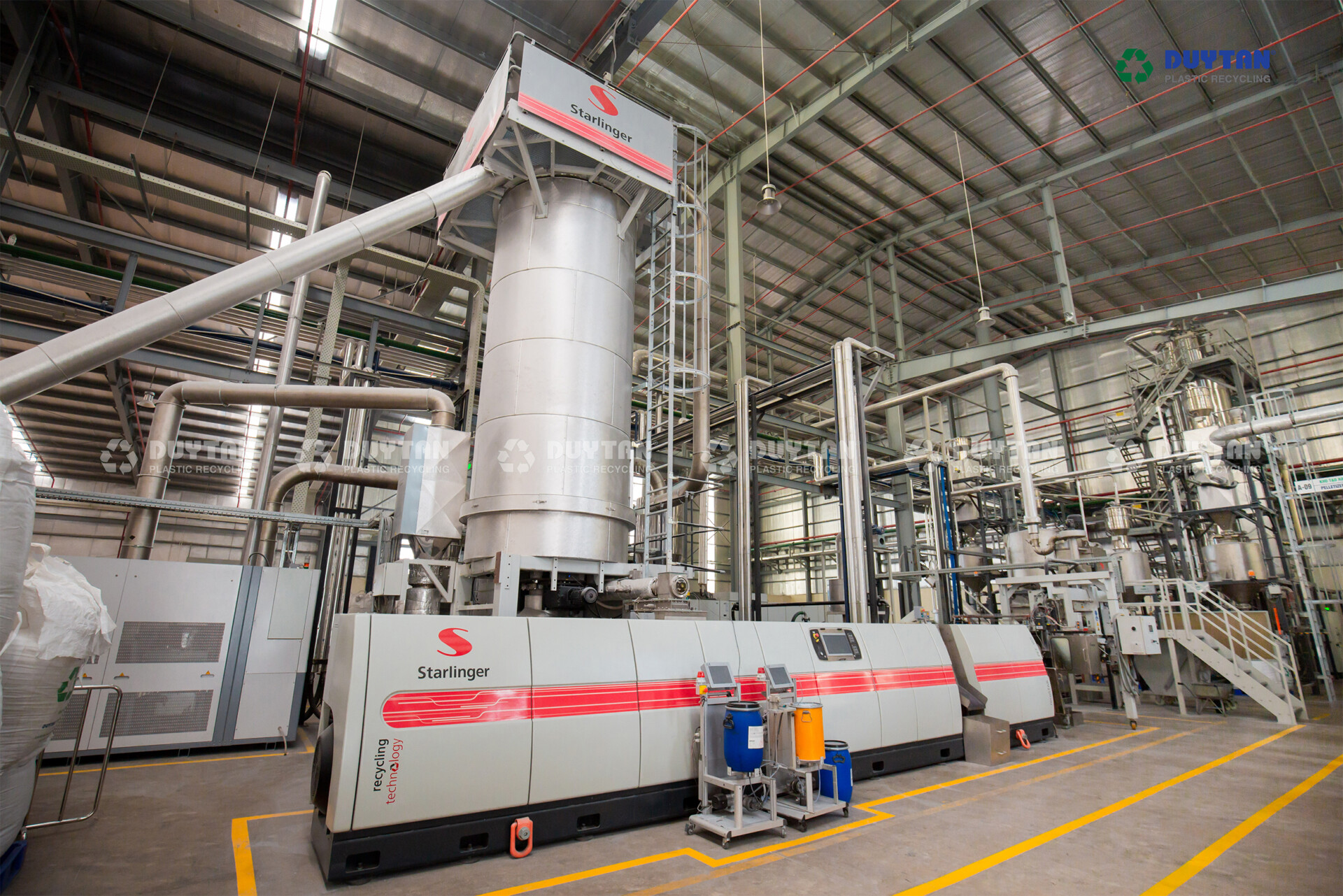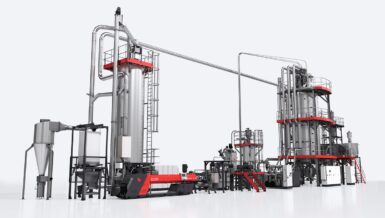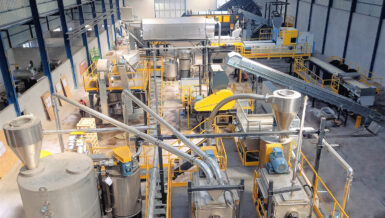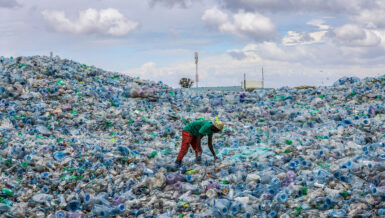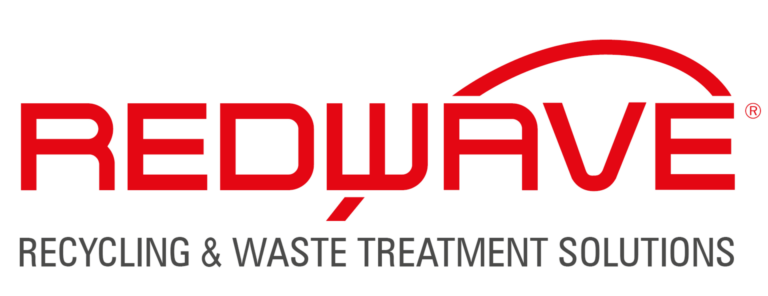At CALEX, a family-run company in the Romanian municipality Groși, approx. 600-700 tons of plastic waste are recycled each month. In July, the company installed a plastics recycling line type recoSTAR dynamic 105 C-VAC supplied by Starlinger recycling technology. With four Starlinger lines running in Romania and three more at the company headquarters CANDI Plastic Recycling in Sollenau/Austria, the owners already operate a total of seven lines supplied by the Austrian machinery manufacturer.
While the Romanian site processes post-consumer waste such as films and PE/PP pipes, the Austrian site recycles mainly industrial waste from plastics production such as rejects or production scrap. In addition, CANDI intends to focus on big bag recycling with a new washing line that is scheduled to go into operation in December. In Austria, the lines need to be highly flexible to cope with the diversity of input materials; in Romania, the setup can be tailored to the fairly homogeneous material streams.
CALEX operates two Starlinger recycling lines type recoSTAR dynamic 105 C-VAC: One line processes big bags, the other line recycles colored, transparent and highly printed LDPE packaging films. During extrusion, the high ink content and the residual moisture after the washing process on the upstream washing lines can lead to the increased formation of gases. With the setup consisting of SMART feeder, continuous melt filter and C-VAC degassing module, both lines are well prepared for these challenges: Through densification and homogenization of the material and the resulting friction, the SMART feeder has a drying effect, and after removal of the residual contamination by the melt filter, the melt surface is increased by 300% in the C-VAC module, thereby allowing for the efficient extraction of gases.
Collectors deliver the plastic waste that is sorted and recycled by 25 employees working at CALEX. Among the companies who purchase the recycled material – mostly plastics converters such as injection and blow molders – are several regular customers.
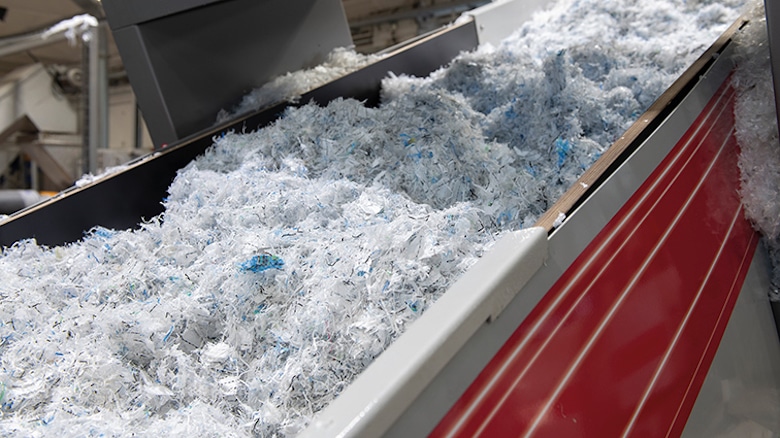
“Our regular customers have to be able to rely on the quality of the regranulate,” says Managing Director Gheorghe Campan. “We installed a second Starlinger ‘dynamic’ in July because the first line has proven its excellent suitability for post-consumer recycling. The lines are equipped with different filter systems, which gives us flexibility when processing material with contaminants such as aluminum, sand, and paper.”
Despite the current recycling boom, the quantities recycled at CALEX remain largely constant. As factors that could contribute to an increase in input quantities, Campan identifies the focus of manufacturers on the recyclability of their products (design for recycling) and EU requirements for a minimum proportion of recycled material in new products. Moreover, an increase in the currently fairly low prices for virgin plastics would favor the use of recycled materials.


